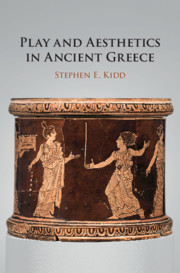In 1968 E.K. Borthwick, with a brilliant conjecture, cleared up a passage from Aristophanes’ Peace that had been considered ‘nonsense’ since antiquity. ‘Bell goldfinch’ (κώδων ἀκαλανθίς) the line seemed to be saying: a jumbled idea at best, gibberish at worst (1078). The scholium reads ad loc.: ταῦτα δὲ πάντα ἐπίτηδες ἀδιανοήτως ἔφρασεν, ‘all this is said as deliberate nonsense’, and later scholars generally follow suit (W.W. Merry, for example, in his 1900 edition of Peace refers to the line as ‘magnificent nonsense’). But Borthwick showed that this was not the case: ‘even nonsense expressions in Aristophanes’, he writes, ‘are not haphazard collocations of incongruous words signifying nothing’. What, then, to do with the ancient scholar (and those later ones) who failed to understand the passage, claiming it instead to be ‘nonsense’?
